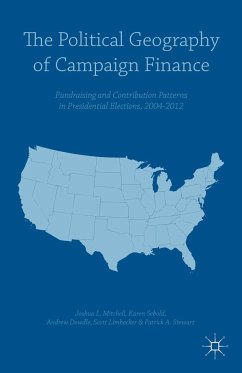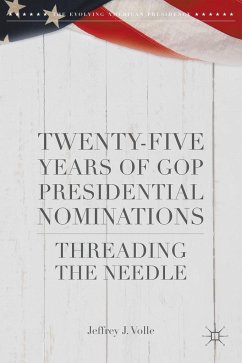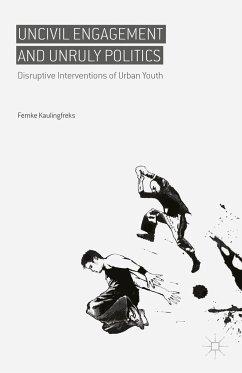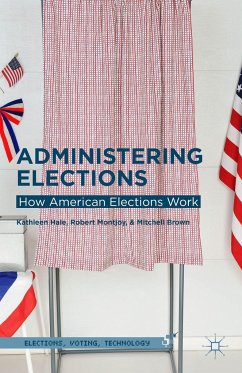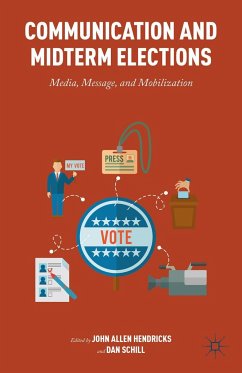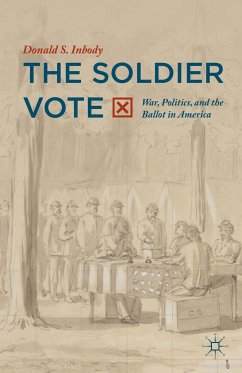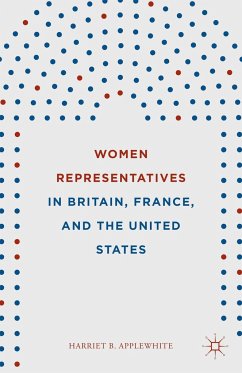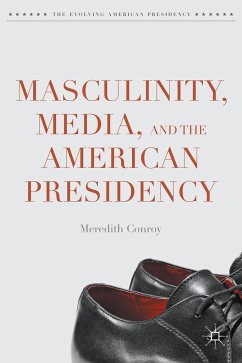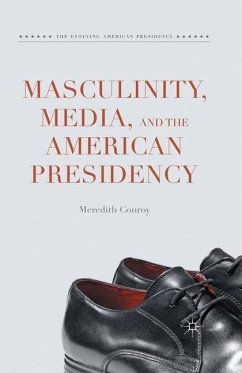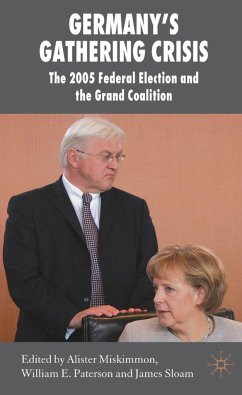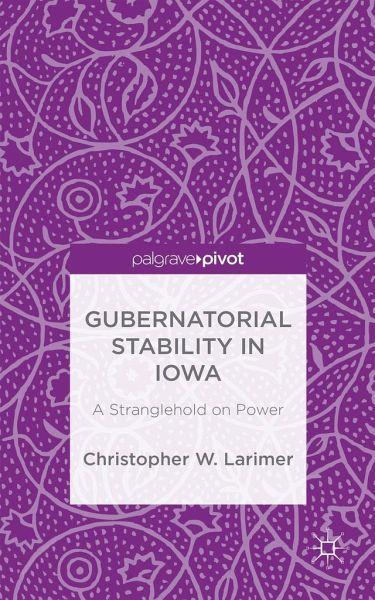
Christopher Larimer
Gebundenes Buch
Gubernatorial Stability in Iowa: A Stranglehold on Power
Versandkostenfrei!
Versandfertig in 6-10 Tagen

PAYBACK Punkte
19 °P sammeln!





This book uses a multi-method approach to explain why recent Iowa governors have been able to stay in office significantly longer than their peers. Voters in Iowa value a personal connection with their governor and those governors who ignore that expectation are held accountable at the polls.
Christopher w. Larimer is Associate Professor of Political Science at University of Northern Iowa, USA. He is the co-author of books on public policy and public administration theory, and has authored or co-authored over a dozen articles in political science journals. He was previously President of the Iowa Association of Political Scientists and a regular guest on Iowa Public Radio and KWWL television news. Christopher has been quoted in the Los Angeles Times, the USA Today, the Washington Times, US News and World Report, and served as a guest columnist for the New York Times: Room for Debate.
Produktdetails
- Verlag: Palgrave Macmillan US / Palgrave Pivot / Springer Palgrave Macmillan
- Artikelnr. des Verlages: 978-1-137-52812-4
- 1st ed. 2015
- Seitenzahl: 164
- Erscheinungstermin: 1. Oktober 2015
- Englisch
- Abmessung: 216mm x 140mm x 14mm
- Gewicht: 321g
- ISBN-13: 9781137528124
- ISBN-10: 1137528125
- Artikelnr.: 43410432
Herstellerkennzeichnung
Libri GmbH
Europaallee 1
36244 Bad Hersfeld
gpsr@libri.de
"As someone who thoroughly enjoys Iowa history, I am pleased to be able to recommend Christopher W. Larimer's Gubernatorial Stability in Iowa: A Stranglehold on Power. The research and analysis presented offers insight and an element of predictability for Iowa elections based on historical trends." - Terry E. Branstad, Governor of Iowa
"While Larimer's book is about recent governors, it's also about what works and what doesn't in political campaigns: Hard work. Bob Ray, Terry Branstad, Tom Vilsack, and Chuck Grassley have one thing in common: they are tireless. Having a good work ethic is clearly an Iowa value, most Iowans do it every day of their lives and they expect to see their leaders do the same. When leaders don't, they get
"While Larimer's book is about recent governors, it's also about what works and what doesn't in political campaigns: Hard work. Bob Ray, Terry Branstad, Tom Vilsack, and Chuck Grassley have one thing in common: they are tireless. Having a good work ethic is clearly an Iowa value, most Iowans do it every day of their lives and they expect to see their leaders do the same. When leaders don't, they get
Mehr anzeigen
fired. If you want to understand Iowa politics, you need to read this book. If you want to win a statewide election in Iowa, read it twice." - David Yepsen, Director, Paul Simon Public Policy Institute, Southern Illinois University, USA
"In this book, Larimer combines a careful understanding of modern political science and its methods with a keen eye for understanding politics. The result is both an excellent read and a thought-provoking contribution to the political science literature on US governors and on public opinion of executive officials more generally. And along the way, the reader is treated to an excellent primer on Iowa politics a heartland state with an out-sized impact on presidential elections and American culture." - Christopher Z. Mooney, Director, Institute of Government & Public Affairs, University of Illinois, USA
"This slim volume provides a unique window into how voters perceive the governor. Through rigorous analysis and gifted storytelling, Larimer demonstrates why Governors, particularly in a state like Iowa, must maintain a close connection to the voters to be successful. This book should be of interest to scholars, students, and citizens interested in Iowa politics, the office of the governor, and why personal connection still matters in politics" - Chris Cooper, Professor and Department Head, Western Carolina University, USA
"In this book, Larimer combines a careful understanding of modern political science and its methods with a keen eye for understanding politics. The result is both an excellent read and a thought-provoking contribution to the political science literature on US governors and on public opinion of executive officials more generally. And along the way, the reader is treated to an excellent primer on Iowa politics a heartland state with an out-sized impact on presidential elections and American culture." - Christopher Z. Mooney, Director, Institute of Government & Public Affairs, University of Illinois, USA
"This slim volume provides a unique window into how voters perceive the governor. Through rigorous analysis and gifted storytelling, Larimer demonstrates why Governors, particularly in a state like Iowa, must maintain a close connection to the voters to be successful. This book should be of interest to scholars, students, and citizens interested in Iowa politics, the office of the governor, and why personal connection still matters in politics" - Chris Cooper, Professor and Department Head, Western Carolina University, USA
Schließen
Für dieses Produkt wurde noch keine Bewertung abgegeben. Wir würden uns sehr freuen, wenn du die erste Bewertung schreibst!
Eine Bewertung schreiben
Eine Bewertung schreiben
Andere Kunden interessierten sich für




